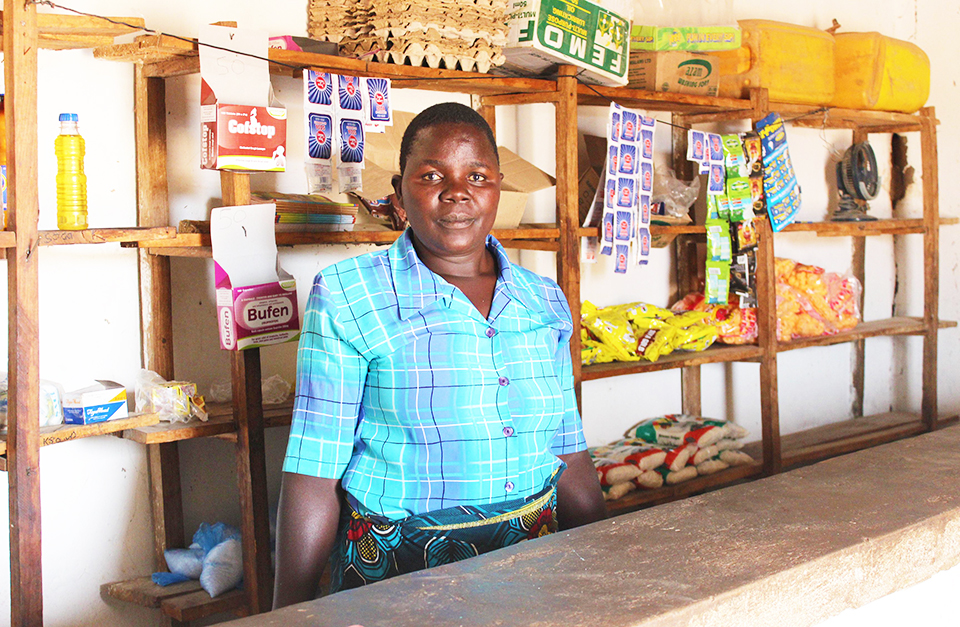Malawi Adopts Climate Smart Groundnut Farming to Increase Productivity and Market
Date:

UN Women through the African Institute of Corporate Citizenship (AICC) with funding from Standard Bank Group is implementing the Women Economic Empowerment (WEE) project in Mchinji and Mzimba Districts to increase productivity and provide access to the market through climate-smart agriculture technologies.
The project promotes participation of women in groundnuts farming through women corporatives through participatory design and user-led innovations by linking users led to enable women design and develop their own labour-saving agricultural tools tailor-made for their culture, soil and cropping systems at the grass-root level. Rural women in Malawi can now access loans from seed revolving schemes to purchase climate-smart seeds.
The project opened a new chapter for 43-year-old Esther Sato. She was one of the beneficiaries of the improved groundnut seeds provided by the African Institute of Corporate Citizenship (AICC) to women groups in Malawi.
The adoption of this new technology has for the first time enabled Sato harvest 1000 kgs of groundnuts, which previously yielded 300 kgs. From the proceeds, she was able to clear her loan from Zuwe corporative, saved some money for her daughter's education and the next planting season.
AICC in partnership with UN Women has been engaging both men and women in strengthening and increasing the value chain of cooperatives involved in groundnut farming.
The UN Women empowerment project links women farmers to private sector operators with mechanised groundnuts processing manual machines resulting in higher-quality groundnuts for the market and knowledge application in climate-smart agriculture to reduce workload during processing previously done manually.
Due to the devastating effects of climate change, the African Institute of Corporate Citizenship (AICC) in partnership with UN Women through the Women Economic Empowerment has been engaging women in small scale farming on climate-smart agriculture by distributing improved and climate-smart inputs through women cooperative societies at the grass-root level. Rural women in Malawi can now access loans from seed revolving schemes to purchase climate-smart seeds.
Through the WEE project, AICC expands its mandate to stimulating and supporting private sector investment in the country's agricultural and rural market with a specific focus on youths and women.